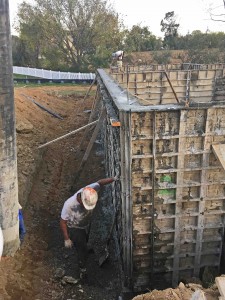There was a professor of political science at Columbia College, Charles Hamilton, who wrote how citizens are manipulated.
Those in power allow for the expulsion of political energy by the masses who oppose change.
The political class proposes a path of exhausting process, seemingly giving the public a voice to object, knowing full well that the process is outcome determinative, and will end as it was contemplated to end when it began.
Under a veil of legitimacy, the process begins, wheels spin, springs compress, political levers are applied, and the public immerses itself in meetings, soft-voice facilitators, hearings, digitally memorialized opinions, statements, and papers galore.
The public enjoys high hopes that what they honestly want will be enacted by their “elected” representatives.
Many well-meaning citizens are thus engaged, and mollified with the hope of prevailing, as they participate like the dickens in the process until the last suspenseful moment, when they find that their “vision,” and all that they said and did, was never meant to be taken seriously.
The Envision “process” in Loudoun County has been an expensive process to grind down the will of the people fed up with residential development and overburdened with the cost of unceasing infrastructure, increased taxes, and lost lifestyle.
This “Envision” scheme was meant from the start to test how far developers could go in writing a Comprehensive Plan before the inhabitants waving pitch forks came to protest outside Harrison Street.
Some may remember when driving from Reston to Loudoun, there was hardly a red brake light before you, and Route 7 was once a true greenway on either side of the road, gradually lost to the homogeneous, ubiquitous, banal, concrete, glass and plastic shops and outlets that finally squeezed out and overran the neighborhoods of Eastern Loudoun.
This ugliness that development brings has crept inexorably from east to west, prodded by our most compliant local officials, inspired by developers who believe we should embrace more sprawl, congestion, even create an “urban area,” a vision so myopic, and distasteful, and yet consistently embraced with enthusiasm by our elected officials.
Our County Chair has reportedly promised to “continue putting infrastructure in place before the [residential] homes come.”
We are hopeful our Chair will reconsider her enthusiasm for this approach.
After all, “infrastructure” for “residential” means building roads, streets, schools, water resources and waste removal.
That means more taxes and debt that the citizens must shoulder to “pave” the way.
This flawed “re-envisioning” process is most transparent in our County’s “transition zone” in the southeastern part of the County, described in an historic multi-page document, aptly titled, “Transition Policy Area,” stating that it was originally created to serve “as a visual and spatial transition between the suburban policy area to the east and the rural policy area to the west.”
It’s been “re-envisioned,” however, for more development, less rural, and more residential, increasing the number of residential units per acre in that “area,” erasing 450 acres of open space and shifting 800 acres from rural acreage to the West into this “transition” area.
This “transition” area’s days may have been numbered when the Board narrowly approved, by a 5-4 vote, a 750,000 square foot data center, not rural, nor residential, called “Truth North.”
Combined with the fact that the Center would suck up 130,000 gallons of water a year, on the borders of the Goose Creek, prompted Catoctin Supervisor Geary Higgins to characterize any vote for this data center as “possibly … the worst vote this or any other board has ever taken.”
The Chair Phyllis Randall reportedly said, “how dare us decide that we know better than all of these people…,” referring to objecting citizens?
Blue Ridge Supervisor Tony Buffington saw this “as a vote against western Loudoun County.”
This vote and trend are a failure to respect our legacy, to pass on the natural treasures, as we found them, undiminished by our use, for our children and succeeding generations to enjoy.
Some envision ours as a New England town government in which the public gets a fair hearing and local policies conform with what we want, rather than an elected official’s meek obeisance, if not abject submission, to whatever some third party developer wants instead.

